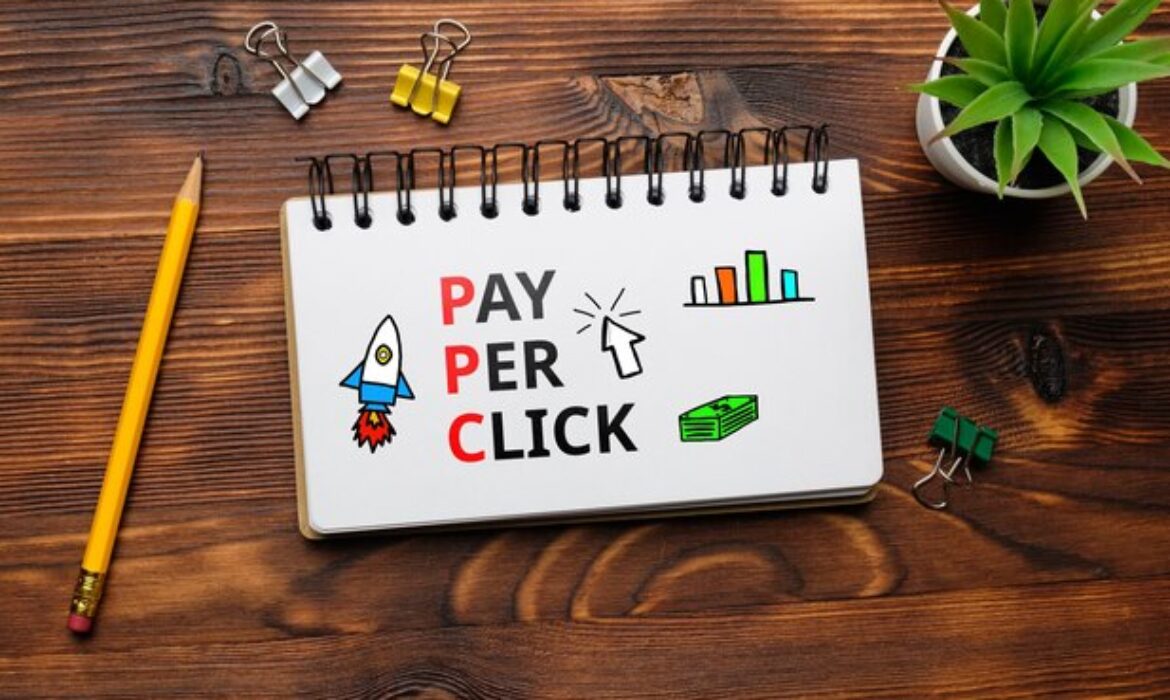A Comprehensive Guide to Digital Marketing Strategies for the Health Industry
Introduction:
In an era dominated by technology, the healthcare industry is increasingly recognizing the pivotal role of digital marketing in reaching and engaging audiences. This article aims to provide a comprehensive guide on how the health sector can harness the power of digital marketing to enhance visibility, connect with patients, and ultimately improve healthcare outcomes.
Building an Online Presence:
Website Optimization: Create an informative and user-friendly website that highlights your services, healthcare professionals and relevant information. Optimize it for search engines (SEO) to improve visibility.
Social Media Platforms: Leverage popular social media platforms to connect with your audience. Share health tips, success stories and updates to foster a sense of community.
Content Marketing for Education:
Blogging: Maintain a blog to share valuable healthcare insights, preventive measures, and industry trends. This not only educates your audience but also establishes your organization as an authority in the field.
Video Content: Utilize video content to explain medical procedures, introduce healthcare professionals and share patient testimonials. Video content is highly engaging and can effectively convey complex information.
Email Marketing for Patient Engagement:
Newsletter Campaigns: Implement targeted email campaigns to keep patients informed about health check-ups, upcoming events and new services. Personalized emails can enhance patient engagement.
Appointment Reminders: Send automated appointment reminders and follow-up emails to improve patient adherence and overall satisfaction.
Utilizing Paid Advertising:
Google Ads: Invest in Google Ads to appear in relevant search results. This can significantly increase the visibility of your healthcare services.
Social Media Ads: Run targeted ads on platforms like Facebook and Instagram to reach specific demographics. Social media advertising can effectively promote health campaigns and services.
Online Reputation Management:
Patient Reviews: Encourage satisfied patients to leave positive reviews on platforms like Google, Yelp or specialized healthcare review sites. Address negative feedback promptly and professionally.
Testimonials: Showcase patient success stories and testimonials on your website. Authentic stories humanize your healthcare practice and build trust with potential patients.
Mobile Health Apps and Telehealth Services:
Mobile App Development: Explore the development of a mobile app for your healthcare services. This can facilitate appointment scheduling, prescription refills and access to medical information.
Telehealth Services: Embrace telehealth options for virtual consultations and remote patient monitoring. Promote these services through digital channels to expand your reach.
Conclusion:
In an increasingly digital world, the health industry stands to benefit significantly from strategic digital marketing efforts. By establishing a robust online presence, creating engaging content, utilizing targeted advertising and embracing emerging technologies, healthcare providers can not only connect with their audience but also contribute to the overall improvement of healthcare accessibility and patient outcomes.
The Crucial Role of Digital Marketing in SaaS Businesses
In today’s dynamic business landscape, Software as a Service (SaaS) companies are thriving, offering innovative solutions to meet the evolving needs of businesses and consumers alike. As the competition intensifies, the strategic implementation of digital marketing has become more crucial than ever for SaaS businesses aiming to stand out, attract the right audience and drive sustainable growth. Let’s explore how digital marketing plays a pivotal role in the success of SaaS ventures.
Building Brand Awareness and Credibility
Digital marketing allows SaaS companies to establish a strong online presence and build brand awareness. A well-crafted website, engaging social media profiles, and compelling content contribute to creating a credible brand image. Consistent messaging across various digital channels helps in establishing trust and reliability, essential factors for attracting potential customers in the crowded SaaS market.
Targeted Audience Acquisition with Paid Advertising
Paid advertising, such as pay-per-click (PPC) campaigns, enables SaaS businesses to reach a highly targeted audience. Platforms like Google Ads and social media advertising allow for precise targeting based on demographics, interests and online behavior. This ensures that marketing budgets are efficiently utilized to attract potential customers who are more likely to convert.
Content Marketing for Education and Lead Generation
Content marketing is a cornerstone of digital marketing for SaaS businesses. Creating valuable content, such as blog posts, whitepapers and webinars, not only educates the audience about the software’s features and benefits but also serves as a powerful tool for lead generation. By addressing pain points and providing solutions, SaaS companies can position themselves as industry leaders and attract qualified leads.
Search Engine Optimization (SEO) for Organic Visibility
A robust SEO strategy is essential for SaaS businesses to rank higher in search engine results. Optimizing website content, incorporating relevant keywords and building high-quality backlinks contribute to improved organic visibility. When potential customers search for solutions, a strong SEO presence ensures that your SaaS offering appears prominently, increasing the likelihood of conversions.
Email Marketing for Customer Retention
Digital marketing extends beyond customer acquisition to include strategies for customer retention. Email marketing campaigns, such as newsletters and product updates, keep existing customers engaged and informed. Additionally, personalized communication and exclusive offers through email help nurture customer relationships, increasing the chances of upsells and referrals.
Social Media Engagement and Community Building
Active participation on social media platforms fosters engagement and community building for SaaS businesses. Platforms like LinkedIn, Twitter and Facebook provide opportunities to connect with industry professionals, share insights and showcase thought leadership. Social media also serves as a valuable feedback channel, enabling SaaS companies to understand customer sentiments and improve their offerings accordingly.
Analytics for Informed Decision-Making
Digital marketing tools provide valuable insights into user behavior, campaign performance, and overall website analytics. SaaS businesses can leverage these data-driven insights to make informed decisions, optimize marketing strategies and allocate resources effectively. Continuous monitoring and analysis ensure that marketing efforts align with business goals and adapt to changing market dynamics.
In conclusion, the integration of digital marketing strategies is not just advantageous but imperative for the success of SaaS businesses. From creating a strong online presence to targeted audience acquisition and customer retention, digital marketing acts as the driving force behind sustained growth in the competitive SaaS landscape. As technology continues to evolve, SaaS companies that embrace and innovate within the realm of digital marketing will undoubtedly position themselves for long-term success.
Transforming Brands into Digital Goldmines using social media
Introduction:
In an era dominated by digital connectivity, social media has emerged as a powerful catalyst for brand growth and visibility. This blog explores the multifaceted ways in which social media acts as a transformative force, propelling brands to new heights of success.
Global Reach and Visibility:
Social media platforms provide an unparalleled reach, connecting brands with a global audience. Through strategic content and engagement, brands can transcend geographical boundaries, fostering a diverse and widespread consumer base.
Brand Awareness and Recognition:
Consistent and engaging social media presence enhances brand awareness. By crafting a compelling narrative and visual identity, brands can imprint themselves in the minds of their target audience, leading to increased recognition.
Audience Engagement and Feedback:
Social media facilitates direct communication between brands and consumers. Real-time interactions, feedback and comments enable brands to understand their audience better, address concerns promptly, and build a community around their products or services.
Content Marketing Hub:
Social media serves as a dynamic platform for content marketing. From captivating visuals to informative videos, brands can showcase their personality and values, creating a compelling narrative that resonates with their audience and fosters brand loyalty.
Influencer Collaborations:
Leveraging influencers on social media allows brands to tap into established audiences. Collaborations with influencers provide authentic endorsements and significantly amplify a brand’s reach, often leading to increased credibility and trust.
Customer Acquisition and Retention:
Social media acts as a robust funnel for customer acquisition. Targeted advertising, promotions, and exclusive offers attract new customers, while consistent engagement ensures customer retention and fosters long-term brand loyalty.
Data Analytics for Strategy Refinement:
Social media platforms offer robust analytics tools. Brands can gather insights into user behavior, preferences, and demographics, enabling them to refine marketing strategies, create more targeted campaigns, and maximize return on investment.
Real-Time Marketing Opportunities:
Social media thrives on trends and real-time conversations. Brands can capitalize on viral moments, current events, and popular hashtags to stay relevant and engage with their audience in a timely and authentic manner.
Conclusion:
In the digital age, social media is more than just a platform; it’s a dynamic ecosystem that empowers brands to connect, engage, and flourish. By harnessing the potential of social media, brands can not only survive but thrive in the competitive landscape, establishing enduring relationships with their audience and turning their digital presence into a goldmine of success.
How Digital Marketing Boosts Online Sales for Small eCommerce Businesses
In the competitive landscape of online retail, small eCommerce businesses face the challenge of standing out and driving sales. The key to success lies in harnessing the power of digital marketing. In this blog post, we’ll explore the various ways digital marketing strategies can significantly impact and elevate small eCommerce ventures.
Enhanced Visibility through Search Engine Optimization (SEO)
Digital marketing starts with optimizing your online store for search engines. Implementing SEO strategies ensures that your eCommerce website ranks higher in search engine results, making it more visible to potential customers. Increased visibility translates to more website visits and, consequently, higher chances of making sales.
Targeted Advertising for Precise Reach
One of the remarkable advantages of digital marketing is the ability to target specific audiences. Platforms like Facebook Ads and Google Ads allow small eCommerce businesses to tailor their advertisements to reach audiences based on demographics, interests and online behavior. This targeted approach ensures that marketing efforts are directed towards those most likely to convert into customers.
Social Media Engagement and Brand Building
A robust social media presence is a game-changer for small eCommerce businesses. Through platforms like Instagram, Facebook, and Twitter, digital marketing enables businesses to engage with their audience, showcase products and build a loyal customer base. Social media acts as a powerful tool for brand awareness, fostering a sense of community around your products or services.
Content Marketing for Authority and Trust
Creating valuable and relevant content is crucial for establishing authority in your niche. Digital marketing strategies incorporate content marketing, including blog posts, articles, and product descriptions that not only inform but also build trust with potential customers. Quality content positions your eCommerce brand as an industry expert and encourages customer loyalty.
Email Marketing for Retention and Repeat Business
Building and maintaining relationships with customers is essential for sustained success. Digital marketing tools enable small eCommerce businesses to implement effective email marketing campaigns. Whether it’s personalized newsletters, exclusive offers or post-purchase follow-ups, email marketing keeps your brand in the minds of customers, encouraging repeat business.
Data Analytics for Informed Decision-Making
Digital marketing provides valuable insights through data analytics. Small eCommerce businesses can track user behavior, monitor the performance of marketing campaigns and gather crucial data to make informed decisions. Analyzing this data helps refine strategies, optimize campaigns, and ensure that every marketing dollar is invested wisely.
In conclusion, the impact of digital marketing on small eCommerce businesses is transformative. By leveraging SEO, targeted advertising, social media engagement, content marketing, email campaigns and data analytics, these businesses can not only survive but thrive in the online marketplace. Embrace the power of digital marketing to unlock new avenues of growth, connect with your target audience, and skyrocket your online sales
The Symbiotic Relationship between Digital Marketing and AI
Introduction:
In the dynamic landscape of digital marketing, the integration of Artificial Intelligence (AI) is ushering in a new era of possibilities. As businesses strive to stay ahead in the digital race, leveraging AI in the realm of marketing is proving to be a game-changer. In this blog post, we’ll explore the multifaceted ways in which digital marketing can harness the power of AI, unlocking unprecedented opportunities for growth, engagement and efficiency.
Personalized Customer Experiences:
AI algorithms analyze vast datasets to understand user behavior, preferences and interactions. This wealth of information enables digital marketers to create highly personalized customer experiences. Tailored content, product recommendations and targeted advertising enhance engagement, fostering stronger connections with the audience.
Predictive Analytics for Strategic Insights:
Harnessing the predictive capabilities of AI, digital marketers can gain invaluable insights into future trends and consumer behavior. By analyzing historical data, AI algorithms identify patterns and trends, empowering marketers to make data-driven decisions. This foresight is instrumental in developing proactive and adaptive marketing strategies.
Chatbots and Virtual Assistants:
AI-powered chatbots and virtual assistants are revolutionizing customer interactions. Integrated into websites and messaging platforms, these bots provide real-time assistance, answer queries and guide users through the customer journey. This not only enhances user experience but also streamlines customer service, saving time and resources.
Smart Content Creation:
AI-driven tools are automating content creation processes. From generating engaging copy to designing visuals, AI algorithms analyze user preferences and trending topics to produce relevant and compelling content. This streamlines content workflows, allowing marketers to focus on strategy and creativity.
Precision Targeting with Programmatic Advertising:
Programmatic advertising, fueled by AI, enables precise targeting of audiences based on demographics, behaviors, and interests. Automated ad placements optimize campaigns in real-time, ensuring that marketing budgets are utilized efficiently. This results in higher conversion rates and improved return on investment (ROI).
SEO Optimization and Semantic Search:
AI algorithms are reshaping the landscape of Search Engine Optimization (SEO). Search engines like Google employ AI to understand user intent and deliver more accurate search results. Marketers can leverage this by creating content that aligns with semantic search, improving visibility and ranking on search engine results pages.
Dynamic Pricing Strategies:
E-commerce businesses benefit from AI-powered dynamic pricing strategies. Algorithms analyze market trends, competitor pricing, and user behavior to optimize product pricing in real-time. This agile approach ensures competitiveness and maximizes revenue.
Conclusion:
As we navigate the era where digital marketing meets artificial intelligence, the possibilities for innovation and growth are boundless. The symbiotic relationship between these two domains is reshaping how businesses connect with their audience, analyze data and optimize strategies. Embracing AI in digital marketing isn’t just a trend; it’s a strategic imperative for those aiming to thrive in the ever-evolving digital landscape. By harnessing the power of AI, businesses can unlock a future where marketing is not just targeted but truly intelligent and responsive to the needs of the audience.
How Brands Transform with Digital Marketing to Solidify Online Presence
Introduction:
In the fast-paced digital landscape, a brand’s online presence is its digital heartbeat. The advent of digital marketing has not only revolutionized how businesses connect with their audience but has also become the cornerstone for establishing and solidifying a robust online identity. In this article, we’ll explore the transformative power of digital marketing and how brands leverage it to enhance and solidify their online presence.
1. Crafting a Digital Identity:
Digital marketing offers a canvas for brands to paint a vivid picture of who they are. From engaging social media profiles to a well-designed website, brands use digital platforms to curate a consistent and compelling narrative that resonates with their target audience. This digital identity becomes the virtual storefront that welcomes visitors and shapes their perception.
2. Search Engine Optimization (SEO):
The virtual journey often begins with a search engine query. Brands invest in SEO strategies to ensure their online content ranks high in search results. By optimizing website content, utilizing keywords and adhering to search engine algorithms, brands increase their visibility, making it easier for potential customers to discover them in the vast online landscape.
3. Social Media Engagement:
Social media platforms have evolved into bustling marketplaces and brands actively participate in the conversation. Through strategic social media marketing, brands not only showcase their products or services but also engage with their audience in real-time. Whether through captivating visuals on Instagram, bite-sized content on Twitter or informative videos on YouTube, social media becomes a dynamic stage for brand expression.
4. Content Marketing as a Storytelling Tool:
The saying “content is king” still holds true in the digital realm. Brands use content marketing to tell their story, share industry insights, and establish authority in their niche. Blogs, articles, videos and infographics contribute to a brand’s content arsenal, creating a valuable resource for both existing and potential customers.
5. Paid Advertising for Precision Targeting:
Digital marketing provides brands with the tools for precise targeting. Through paid advertising on platforms like Google Ads, Facebook Ads, or LinkedIn Ads, brands can tailor their message to specific demographics, ensuring that their content reaches the right audience at the right time.
6. Analytics for Continuous Improvement:
The beauty of digital marketing lies in its measurability. Brands leverage analytics tools to track the performance of their campaigns, website traffic and social media engagement. This data-driven approach allows for continuous improvement, as brands can adjust their strategies based on what works best, ensuring a dynamic and evolving online presence.
Conclusion:
In the digital era, a brand’s online presence is more than a website or a social media profile—it’s an immersive experience. Through the alchemy of digital marketing, brands have the power to transform their online presence, engaging with audiences, telling compelling stories and solidifying their position in the digital landscape. As technology continues to advance, so too will the innovative ways in which brands utilize digital marketing to thrive in the ever-evolving online world.
Revolutionizing E-Commerce Success
Introduction:
In the era of online shopping dominance, digital marketing has emerged as the linchpin for the success of e-commerce businesses. From creating brand awareness to driving conversions, the digital marketing landscape offers a plethora of strategies that can elevate e-commerce ventures to new heights. In this blog, we explore the multifaceted ways in which digital marketing transforms the e-commerce landscape, fostering growth, and cultivating lasting customer relationships.
1. Enhanced Online Visibility and Brand Awareness:
Search Engine Optimization (SEO):
Optimizing e-commerce websites for search engines ensures higher visibility in search results. Appearing on the first page enhances brand awareness, driving organic traffic and positioning the brand as a go-to choice.
Social Media Marketing:
Platforms like Instagram, Facebook and Twitter are powerful tools for building brand awareness. Engaging content, influencer collaborations and targeted ads on social media platforms can exponentially expand the reach of e-commerce brands.
2. Targeted Advertising for Relevant Audiences:
Pay-Per-Click (PPC) Advertising:
PPC campaigns enable e-commerce businesses to target specific keywords, demographics and user behaviors. This targeted approach ensures that ads reach the most relevant audience, maximizing the chances of conversion.
Social Media Ads:
Platforms like Facebook and Instagram offer highly targeted advertising options. E-commerce businesses can create ads that resonate with specific demographics, interests and behaviors, resulting in more effective campaigns.
3. Content Marketing for Engagement:
Blogging and Content Creation:
Creating relevant and valuable content through blogs, product guides, and tutorials establishes e-commerce brands as authorities in their niche. Informative content not only engages the audience but also enhances search engine rankings.
Video Marketing:
Video content is a potent tool for e-commerce marketing. Product demonstrations, tutorials, and behind-the-scenes videos can captivate the audience, providing an immersive experience and driving engagement.
4. Conversion Optimization Strategies:
Email Marketing:
Crafting targeted email campaigns, including newsletters, product announcements and personalized recommendations, keeps the brand at the forefront of the customer’s mind and encourages repeat business.
Retargeting Ads:
Retargeting campaigns remind users of products they viewed but didn’t purchase. This strategic approach keeps the brand in the customer’s consideration set, increasing the likelihood of conversion.
5. User Experience (UX) and Website Optimization:
Website Design and Navigation:
A user-friendly website with intuitive navigation is crucial for e-commerce success. Digital marketing strategies focus on optimizing the user experience, ensuring a seamless journey from product discovery to checkout.
Mobile Optimization:
Given the rise in mobile shopping, ensuring that the e-commerce website is optimized for mobile devices is essential. Mobile-friendly design and responsive layouts contribute to a positive user experience.
6. Data-Driven Decision Making:
Analytics and Reporting:
Digital marketing provides a wealth of data through analytics tools. E-commerce businesses can analyze user behavior, track conversion rates, and gain insights into customer preferences, informing strategic decisions for continual improvement.
A/B Testing:
A/B testing allows e-commerce brands to experiment with different elements of their website and marketing campaigns. By analyzing performance metrics, businesses can refine strategies and optimize for maximum effectiveness.
Conclusion: Navigating E-Commerce Success with Digital Marketing
As the e-commerce landscape continues to evolve, digital marketing remains the catalyst for sustained success. Whether it’s creating brand awareness, driving targeted traffic or optimizing the user experience, the diverse strategies within the digital marketing toolkit are essential for e-commerce businesses aiming to thrive in the competitive online marketplace. By harnessing the power of digital marketing, e-commerce ventures can not only survive but truly excel in their journey toward growth, customer loyalty and long-term success.
How Lead Generation Services Propel Business Success
Introduction:
In the ever-evolving landscape of business, acquiring high-quality leads is the lifeblood of sustainable growth. Enter this services, a dynamic solution designed to connect businesses with potential customers who are genuinely interested in their products or services. In this blog, we explore how lead generation services serve as powerful catalysts for business success, driving revenue and fostering long-term customer relationships.
- Targeted Outreach for Quality Leads:
Precision in Audience Targeting:
Lead generation services employ advanced targeting strategies, ensuring that businesses reach audiences most likely to convert. By considering demographics, behaviors and interests, the service narrows down the focus, delivering leads with a higher likelihood of conversion.
Industry-Specific Expertise:
Many agency specialize in particular industries, allowing businesses to tap into a pool of leads with a genuine interest in their niche. This industry-specific targeting ensures that businesses connect with prospects that are more likely to find value in their offerings.
- Cost-Effective Marketing Investment:
Pay for Performance:
Unlike traditional advertising models, many lead generation services operate on a pay-for-performance basis. Businesses pay for the leads they receive, making it a cost-effective option with a clear return on investment (ROI) as they only invest in potential customers who have expressed interest.
Predictable Budgeting:
Lead generation services enable businesses to set budgets based on their goals. This predictability allows for better financial planning and ensures that marketing efforts align with the available resources, whether for a startup or an established enterprise.
- Time Efficiency and Resource Optimization:
Focus on Core Competencies:
Outsourcing lead generation allows businesses to concentrate on their core competencies. By delegating the process to experts, businesses can redirect internal resources towards product development, customer service, and other critical aspects of their operations.
Streamlined Sales Processes:
High-quality leads provided by lead generation services often come with valuable information, making the sales process more efficient. Armed with relevant data, sales teams can personalize their approach and prioritize leads that are more likely to convert.
- Scalability and Flexibility:
Adapting to Growth:
As businesses scale, this services can seamlessly adapt to changing needs. Whether aiming for local market penetration or global expansion, these services can adjust strategies to accommodate evolving business goals.
Campaign Optimization:
Lead generation services continually analyze data and performance metrics, allowing for real-time adjustments to marketing strategies. This optimization ensures that businesses stay ahead of the competition and capitalize on emerging opportunities.
- Building a Robust Sales Pipeline:
Consistent Lead Flow:
Lead generation services provide a steady stream of leads, ensuring a consistent flow into the sales pipeline. This consistent influx allows businesses to maintain momentum and avoid the peaks and valleys often associated with traditional marketing efforts.
Diverse Lead Channels:
Lead generation services leverage various channels, including social media, content marketing, email campaigns and more. This diversity ensures that businesses explore multiple avenues to reach their target audience, resulting in a more comprehensive marketing strategy.
- Nurturing Customer Relationships:
Personalized Engagement:
Quality lead generation services go beyond mere lead acquisition; they focus on building relationships. By offering personalized engagement and relevant content, businesses can nurture leads through the sales funnel, fostering trust and loyalty.
Timely Follow-ups:
Prompt follow-ups on leads provided by lead generation services are crucial. Timely engagement demonstrates a commitment to customer satisfaction and increases the likelihood of converting leads into loyal customers.
Conclusion:
In the dynamic world of business, lead generation services emerge as strategic allies, offering a streamlined and efficient path to growth. From targeted outreach and cost-effective marketing to scalability and relationship building, the benefits of leveraging this services are manifold. As businesses navigate the competitive landscape, embracing the power of this services becomes not just a choice but a pivotal strategy for propelling success, driving revenue and fostering enduring customer relationships.
How Pay-Per-Click (PPC) Advertising Transforms Brand Marketing
Introduction:
In the vast landscape of digital marketing, brands are constantly seeking strategies that not only elevate their visibility but also deliver measurable results. Enter Pay-Per-Click (PPC) advertising – a dynamic approach that goes beyond traditional marketing, offering brands a powerful tool to reach their audience, drive engagement and achieve tangible business objectives. In this blog, we explore the transformative impact of PPC advertising on brand marketing and the myriad ways it contributes to sustained success.
1. Immediate Visibility and Brand Exposure:
Faster Results:
Unlike organic strategies, PPC delivers almost instant results. As soon as a campaign is launched, ads can appear at the top of search engine results pages (SERPs), providing immediate visibility to the brand.
Targeted Brand Exposure:
PPC allows brands to target specific keywords, demographics and user behaviors, ensuring that their ads are presented to the most relevant audience. This targeted approach maximizes the impact of brand exposure.
2. Measurable and Trackable Performance:
Clear ROI Measurement:
PPC provides a level of measurability that is unparalleled in traditional advertising. Brands can track key performance indicators (KPIs) such as click-through rates (CTR), conversion rates and return on investment (ROI) in real-time.
Data-Driven Decision Making:
The wealth of data generated by PPC campaigns empowers brands to make informed decisions. Analytics tools offer insights into user behavior, allowing for continuous optimization and refinement of marketing strategies.
3. Enhanced User Engagement and Interaction:
User-Centric Ad Formats:
PPC ad formats are designed to engage users effectively. Compelling ad copy, relevant keywords and enticing visuals contribute to a positive user experience, encouraging interaction and boosting brand engagement.
Call-to-Action Focus:
PPC ads are strategically crafted to include clear and compelling calls-to-action (CTAs). This direct approach prompts users to take specific actions, whether it’s making a purchase, filling out a form or visiting the brand’s website.
4. Budget Flexibility and Cost Control:
Cost-Effective Advertising:
PPC allows brands to set their budgets based on their advertising goals. This flexibility ensures that even smaller businesses can participate in online advertising, reaching their target audience without breaking the bank.
Bid Management Strategies:
Smart bid management strategies enable brands to control costs effectively. With options like manual bidding, automated bidding and bid adjustments, brands can optimize their spending for maximum impact.
5. Strategic Brand Positioning:
Top Placement in SERPs:
PPC enables brands to secure prime real estate at the top of search results, enhancing their visibility and positioning them as authoritative players in their industry.
Competing with Industry Leaders:
Even smaller brands can compete on equal footing with industry giants through PPC. A well-optimized campaign allows brands to appear alongside or even above established competitors, leveling the playing field.
6. Adaptability to Marketing Objectives:
Campaign Customization:
PPC campaigns can be customized to align with various marketing objectives, whether it’s increasing brand awareness, driving website traffic, promoting specific products or generating leads. This adaptability ensures that PPC aligns seamlessly with broader marketing strategies.
Seasonal and Timely Promotions:
Brands can leverage PPC for seasonal promotions, sales, and time-sensitive offers. The ability to schedule ads strategically allows for targeted marketing during peak periods, maximizing the impact of promotional efforts.
Conclusion:
Maximizing Brand Impact with PPC Advertising
In a digital landscape characterized by speed, precision, and measurable outcomes, PPC advertising stands out as a game-changer for brands. By providing immediate visibility, measurable results and strategic adaptability, PPC transforms brand marketing into a dynamic, data-driven endeavor. As brands navigate the evolving digital landscape, integrating PPC into their marketing arsenal becomes not just a strategy but a key driver of success in achieving brand objectives and sustaining growth.
Top 10 SEO Agencies Redefining Online Visibility in 2024
Introduction:
In the vast expanse of the digital realm, search engine optimization (SEO) stands as the cornerstone of online success. As businesses strive to enhance their visibility and reach a wider audience, the role of SEO agencies becomes pivotal. In this blog, we unveil the top 10 SEO agencies that are at the forefront of the industry, leveraging innovation and expertise to redefine online visibility for businesses worldwide.
Pingaloud has long been a trailblazer in the SEO landscape. Pingaloud empowers businesses to navigate the complex world of SEO with data-driven precision.
Ahrefs:
Ahrefs is a comprehensive SEO toolset that has gained acclaim for its backlink analysis, keyword research, and competitor tracking capabilities. With a focus on providing actionable insights, Ahrefs is a go-to choice for businesses aiming to climb the search engine rankings.
Searchmetrics:
Searchmetrics is a global leader in SEO and content marketing. Their platform offers a holistic view of a brand’s online presence, allowing businesses to optimize their strategies and stay ahead in the ever-evolving world of search.
Semrush:
Semrush is a versatile SEO tool that covers a wide array of digital marketing needs, including SEO, PPC, content marketing and more. Trusted by marketers worldwide, Semrush provides in-depth insights to fuel data-driven decision-making.
Neil Patel Digital:
Neil Patel’s digital agency is synonymous with results-driven SEO strategies. With a focus on content marketing, keyword optimizationand technical SEO, Neil Patel Digital has earned its place among the top agencies for businesses seeking online prominence.
SEOmoz (now Moz):
As one of the early pioneers in SEO, Moz continues to be a go-to choice for businesses looking to master search engine optimization. Their commitment to education and innovation has made them a trusted partner for brands navigating the complexities of SEO.
PageTraffic:
PageTraffic is a leading SEO agency with a global presence. Specializing in a range of SEO services, including local SEO and e-commerce SEO, PageTraffic has a track record of delivering tangible results for businesses of all sizes.
RankPay:
RankPay stands out for its performance-based SEO services, aligning the success of the agency with the success of its clients. With a focus on transparency and measurable results, RankPay is a preferred choice for businesses seeking a results-driven SEO partner.
Directive:
Directive takes a comprehensive approach to SEO, integrating strategies for organic search, paid media and content marketing. With a focus on B2B industries, Directive helps businesses increase their online visibility and drive qualified leads.
WebFX:
WebFX is a full-service digital marketing agency that excels in SEO. With a data-driven approach and a team of seasoned SEO experts, WebFX helps businesses of all sizes improve their search rankings and maximize their online presence.
Conclusion:
In the competitive landscape of digital marketing, these top 10 SEO agencies stand out for their innovation, expertise, and proven track record of delivering results. Choosing the right SEO partner is crucial for businesses looking to thrive online, and these agencies have consistently demonstrated their ability to navigate the complexities of SEO and drive success for their clients.















